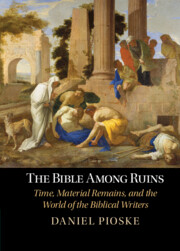The question of how to approach the Hebrew Bible as a source for the histories we write of ancient Israel continues to divide scholars. This study responds to such concerns by pursuing an approach informed by a historicized view of knowledge, or a framework in which the claims we make are understood to be reflective of the eras in which they are realized. What this line of research encourages, I argue, are historical investigations into the underlying modes of knowing that would have contributed to the stories told in the biblical writings. Since knowledge about the past is itself historical, this study contends that it is necessary to situate such claims in time, examining the normative assumptions of an era that establish the parameters by which this knowledge is organized and granted credibility. The epistemic conditions that gave rise to the stories recounted in the Hebrew Bible are as much an object of historical interest, on this view, as the stories themselves for assessments of what evidence they might offer.


